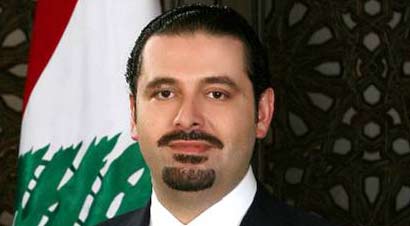Political Situation in Lebanon: Government of National Unity and Reconciliation
Mohamed Chatah, Advisor to the Prime Minister Saad Hariri, best summarizes how Lebanon plans to navigate toward the future: “Politics in the Middle East is turbulent and Lebanon is often pulled in all sorts of directions. Because Lebanon is very diverse, this results in a noisy and often difficult democracy that we have to navigate through without abandoning our principles.”
Political Situation in Lebanon — Finally there is a government of national unity and reconciliation
For the last third of a century, especially from 1975 to 2008, the common perception of Lebanon was that of a tiny, strife-torn country manipulated by foreign powers, notably Syria, Iran, Saudi Arabia, Israel, and the United States, but that perception is now undergoing fundamental change for two reasons.
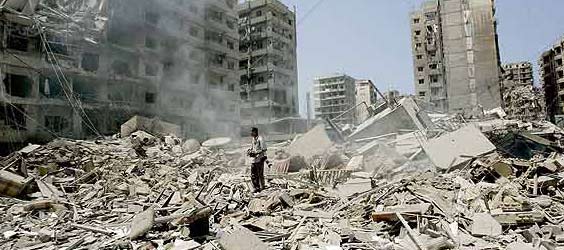
The first reason is the drastic change in the political situation that has taken place since the now-famous Doha Summit of May 2008, to which were invited all the opposing Lebanese parties that were fueling the unrest that had gripped the country. The outlook for the talks was not initially encouraging; one local blogger wrote:
“So the whole lot of bickering militia leaders has now been flown to Doha to continue their unending stubbornness in a different environment… At Beirut’s freshly reopened international airport, an organization of handicapped civil war veterans and other NGO’s waved them out with signs saying:
‘If you don’t agree, don’t come back!’
– probably the best and most concise representation of current national opinion across the board.” (In the Middle East, 17 May 2008, http://middeno.wordpress.com/2008/05/ )
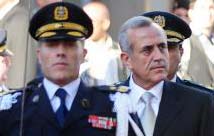 But a miracle happened: all the “bickering leaders” accurately read the mood of the country and resolved to agree. Not only that, they have since striven to carry out their agreement by putting aside their differences enough to share power. In November, they agreed on a new president, Michel Suleiman, as well as an interim cabinet composed of all sides pending new elections. Those new elections were held in June 2009. They produced no surprises relative to the previous election in 2005: the moderate March 14th coalition won 71 seats (loss of one) of the 128-seat Parliament, while the March 8th Alliance consisting of Hezbollah and its allies won 57 (gain of one).
But a miracle happened: all the “bickering leaders” accurately read the mood of the country and resolved to agree. Not only that, they have since striven to carry out their agreement by putting aside their differences enough to share power. In November, they agreed on a new president, Michel Suleiman, as well as an interim cabinet composed of all sides pending new elections. Those new elections were held in June 2009. They produced no surprises relative to the previous election in 2005: the moderate March 14th coalition won 71 seats (loss of one) of the 128-seat Parliament, while the March 8th Alliance consisting of Hezbollah and its allies won 57 (gain of one).
Real Result of Lebanon Elections
But the real result of this election is vastly different. Upon winning the election, Saad Hariri, leader of the March 14th coalition in both 2005 and 2009, announced: “Today, Saad Hariri is a different Saad Hariri than he was four years ago. I learned a lot in four years.” Throughout the election he had campaigned on a new spirit. “All we wanted is for Lebanon to come first.
The vision is that Lebanon should come before any [foreign] interest.
“What we talked about”, he said, “was what the people really want—
jobs, an economy that is thriving, reforms within the government, and a strong central government.”
In the spirit of the Doha agreement, when Hariri’s March 14th Coalition won the majority of seats, he carried out this new persona by immediately reaching out to the other side: “Yes, we will reach out to all political parties,” he announced.
“We won the majority but there are also people who voted for the 8th of March Alliance in which Hezbollah is included…There are no blue states and red states. We want to unite Lebanon and find a common ground in unifying Lebanon for the interests of Lebanon.”
The immediate result was Saad Hariri’s election as Prime Minister by Parliament and selection of a thirty-member unity government consisting of 15 members from Hariri’s March 14th coalition, 10 from the March 8th Alliance (Hezbollah and its allies), and 5 cabinet members independently appointed by President Suleiman.
Michel Pharaon , Chairman of Pharaon Holding and Minister of State for Parliamentary Affairs, rightly summarizes the results of this development in the current situation.
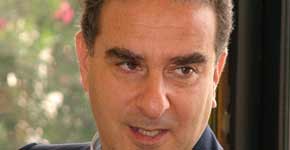 “The real milestone was the assassination of President Hariri and the 14th of March which was really a kind of revolution of the Lebanese people. The Syrian evacuation from Lebanon was also important. Since then there has been a dialog and we have a program that we have to try to implement. There is the international tribunal for the assassination of President Hariri and a lot of other political leaders who were assassinated. There is a consensus to try and treat the Palestinian arms inside and outside of the camps. There is also the process of dialogue for the strategy of defense which includes the future of the arms of Hizbullah, which is not controlled by the government. Today the unity cabinet where all the major forces are present has a political program to preserve the political and security stability in Lebanon while still permitting the private sector to really prosper.”
“The real milestone was the assassination of President Hariri and the 14th of March which was really a kind of revolution of the Lebanese people. The Syrian evacuation from Lebanon was also important. Since then there has been a dialog and we have a program that we have to try to implement. There is the international tribunal for the assassination of President Hariri and a lot of other political leaders who were assassinated. There is a consensus to try and treat the Palestinian arms inside and outside of the camps. There is also the process of dialogue for the strategy of defense which includes the future of the arms of Hizbullah, which is not controlled by the government. Today the unity cabinet where all the major forces are present has a political program to preserve the political and security stability in Lebanon while still permitting the private sector to really prosper.”
Changing Perception of Lebanon
The second reason for a change of perception regarding Lebanon arises from the conduct of the people and the economy since the convulsive events of 2005-2008. The people, besides indicating to the politicians that they were sick of turmoil, also proved that they could go to work spectacularly well for Lebanon.
The economy redounded from the nadir
years of the Israeli invasion and its
aftermath by growing 8.5 percent in
2008, 9 percent in 2009, and is currently
running at 7 percent growth for 2010.
Immediately after the bickering factions agreed, the Lebanon tourism industry posted gains of 39 percent in 2009, and is expected to grow by another 26 percent in 2010. Throughout the last five years, in spite of all the turmoil of 2005-08, the construction industry nevertheless grew by 20 percent a year.
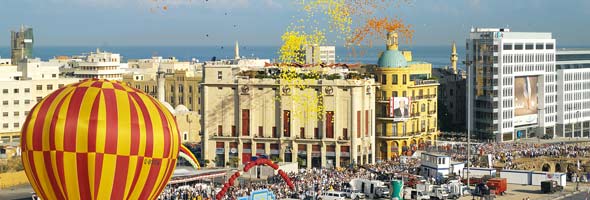
The banking sector , constituting the largest part of Lebanon’s GDP, avoided toxic assets prior to the global financial crisis, and thus came through with greatly enhanced prestige and confidence from investors, as shown by increasing deposits, liquidity, and growth What this proves, says Dr. Fadi Abboud, Minister of Tourism in Lebanon , is that “Lebanon has a vibrant economy and can withstand many problems.”
Facing the future, says Dr. Tarek Mitri, Minister of Information,
“My hope is that Lebanon will not be seen only through the eyes of those who fear that it is a mirror of regional conflicts. It is truly a country that has been able to bounce back, to heal itself from the ravaging effect of the successive wars we have had. It is a country with a very vibrant society; this is true of our economy and our cultural life. No matter how the state institutions might be hampered in performing their duties, the society is more dynamic and moves forward, and this needs to be seen and recognized in the world.”
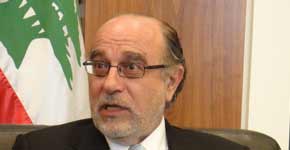 Mohamed Chatah, Advisor to Prime Minister Saad Hariri, best summarizes how Lebanon plans to navigate toward that future:
Mohamed Chatah, Advisor to Prime Minister Saad Hariri, best summarizes how Lebanon plans to navigate toward that future:
“Politics in the middle east are turbulent and Lebanon is often pulled in all sorts of directions. Because Lebanon is rich with diversity, this results in a noisy and often difficult democracy that we have to navigate through without abandoning our principles. Not everyone sees eye to eye in Lebanon, but we are trying to navigate a safe course for Lebanon by taking into account the many facts he cannot change while maintaining the principles and goals he has, while keeping in mind both his goals and the interests of the country. Lebanon allows for diversity and expression of beliefs, and this isn’t always easy to do. We would like to move towards a more relaxed and comfortable existence where we can continue to create an open environment laden with peace and improve with each generation.”
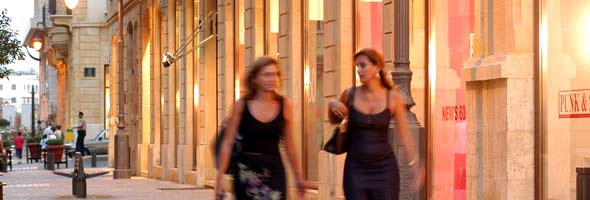
The same approach underlies the thinking of Michel Pharaon, Chairman of Pharaon Holding and Minister of State for Parliamentary Affairs:
“We believe Lebanon can become a land of institutionalized dialogue. Lebanon is one of the only countries in the region that has a free press and a free economy, and the puzzle of Lebanon such as all of minorities there has created immunity against dictatorship because nobody can really dictate on other factions. Today we are thinking that the best way to preserve Lebanon is by recognizing all of the factions and minorities, and ensuring this small land is preserved as a place of peace and harmony.”
